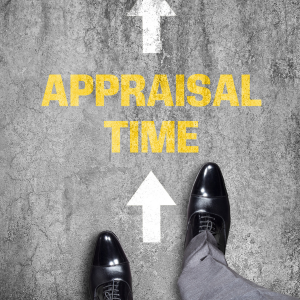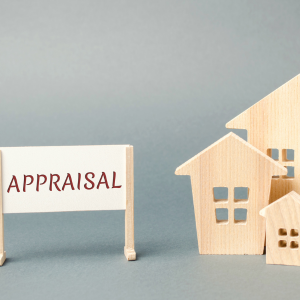
How Long After an Appraisal Can You Close in Pasadena, CA? Steps to Closing
Buyers and sellers in Pasadena, CA’s real estate market, which is known for its competitiveness and rapid pace, would do well to familiarize themselves with the timeframe from appraisal to closing. With this comprehensive guide, you’ll have all the information you need to close your deal quickly and easily after an appraisal. A trouble-free transfer to home ownership is possible if you take the time to educate yourself on the required processes and expectations. Whether you’re an experienced investor or a first-time buyer, this detailed overview will provide you with all the information you need to successfully complete the Pasadena closing process.
Key Highlights
- Understanding the appraisal process helps ensure smoother real estate transactions in Pasadena.
- The appraisal impacts the closing timeline, influencing loan terms and necessitating potential renegotiations.
- Appraisal contingencies allow buyers flexibility if the property appraises for less than the offer price.
- The typical closing timeline in Pasadena is 30 to 45 days post-appraisal.
- Discrepancies in appraisal reports can delay closing, requiring negotiation and proactive communication.
Understanding the Appraisal Process

Getting a handle on the appraisal process is key to navigating the real estate journey, especially for potential homebuyers in Pasadena, CA. The appraisal is a critical step that affects many layers of the home-purchasing experience. From assessing your property’s current value to influencing mortgage details, understanding this procedure helps ensure a smoother transaction. When buyers comprehend what a home appraisal entails and the key steps involved, they can engage more effectively with lenders and appraisers. This knowledge also aids in maintaining their mortgage timelines and expectations regarding home equity and investment potential.
What Is the Home Appraisal?
Professional home appraisals are done by licensed appraisers. The homebuying process relies on it to protect the buyer and lender. Appraisals verify the agreed-upon price reflects the property’s true market value. This involves a thorough inspection of the property’s condition, size, location, and any unique features that affect its real estate value. Mortgage appraisals affect home loan terms and the amount of money a lender will lend. Each appraisal report offers a thorough overview to maintain accurate valuations in line with Pasadena real estate trends.
For impartial home appraisals, independent appraisers have no stake in the property’s sale. This process is crucial for determining a buyer’s home equity if they resell the property later. If the appraisal shows a lower value than the asking price, the buyer’s mortgage terms may need to be adjusted, requiring further negotiations or appraisals. The appraisal helps lenders avoid financial overextension by ensuring the loan amount matches the property’s assessed value. During the appraisal process, specific factors such as recent sales data, market conditions, and planned improvements are considered within predetermined standards.
This assessment is crucial for home purchases, risk assessment, and investment stability. It’s an evaluation tool and a protection mechanism for real estate transactions. To protect and satisfy buyers, an appraisal contingency allows them to renegotiate terms, request a lower sale price, or withdraw from the deal if valuation discrepancies arise.
Key Steps in the Home Appraisal
The appraisal process involves several key steps to ensure accurate property valuation. The first step is for the lender to order the appraisal as part of their due diligence when assessing the property for a mortgage agreement. Once hired, an appraiser conducts an on-site examination of the property’s exterior and interior. They will evaluate structural and decorative features that could impact the property’s market value. This hands-on visit is critical for cross-checking details against real estate records and adjusting the appraisal report as necessary.
The appraiser performs a thorough analysis of recent comparable sales to assess the property’s current market value, ensuring the offer aligns with Pasadena’s housing trends. Their findings are compiled into a detailed appraisal report that examines key factors such as property size, condition, neighborhood data, and any equity-boosting improvements. This report serves as a crucial tool for buyers, lenders, and real estate professionals in making financing and negotiation decisions. For those seeking a quicker route, working with cash home buyers in Pasadena and surrounding California cities can help streamline the process and move from appraisal to closing much faster.
The appraiser then submits the completed appraisal report to the lender, who carefully reviews it to ensure that it is consistent with the proposed mortgage and purchase price. It is critical for both buyers and lenders to ensure that their interests are protected and that financial projections are based on accurate estimates. To maintain the transaction timeline, any disagreements or challenges with the appraisal should be addressed immediately. If the property’s value is unexpectedly low, the buyer can use this report to negotiate a lower price or seek alternative financing. This proactive approach can reduce delays and align expectations for both the lender and buyer moving forward.
The final step involves all parties accepting the appraisal’s conclusions, allowing the transaction to proceed to the mortgage approval stage. This step demonstrates the lender’s belief in the property’s value as a sound investment. Understanding these steps helps buyers and sellers recognize their roles and responsibilities, resulting in an efficient home buying process, successful loan approvals, and property ownership transitions.
Factors Influencing the Closing Timeline
The closing timeline in Pasadena can vary greatly depending on a number of factors, the appraisal process being one of the most important. Homebuyers must understand how appraisals affect the closing process. Appraisal contingencies and potential delays can alter expected timelines, affecting how quickly you can close on a home loan. This section discusses how appraisals affect closing timelines, the significance of contingencies, and how mortgage lenders and real estate experts interact with buyers. Understanding these elements helps to reduce time-related surprises during the home-buying process.
Impact of the Appraisal on Closing
Any real estate transaction’s closing timeline depends heavily on the appraisal. Mortgage lenders base loan terms on property value, which is determined by the appraisal. After the appraisal report is submitted, lenders check the assessed value against the proposed purchase price and loan amount. An appraisal that confirms value advances the closing process. However, discrepancies between the appraisal and expected value may require further negotiations, causing delays. These discussions may involve adjusting the purchase price or discussing new lender terms.
Mortgage appraisals that don’t meet the expected purchase price also affect closing times. When a property appraises for less than the offer, lenders won’t lend more. This forces buyers to increase their down payment, renegotiate terms, or cancel. Thus, real estate professionals and buyers must work quickly to reach a deal or find other solutions to avoid a lengthy closing process. The buyer’s financial flexibility and available home equity are crucial factors in decision-making in such situations.
Moreover, realtor expertise plays a vital role during this stage. Skilled agents guide buyers in making competitive yet realistic offers aligned with current market trends, helping to minimize appraisal-related complications. They also streamline communication between lenders and buyers while clarifying each party’s roles, responsibilities, and timelines. Addressing these details early ensures smoother progress throughout the transaction. For added support in navigating this process, Eazy House Sale can help make your Pasadena home sale or purchase more efficient and stress-free.
An appraisal can take longer if initial results are disputed and require a second opinion or more documentation. The extended closing process may cause tension between buyers and sellers. Real estate experts and mortgage lenders must be kept informed at this point. Understanding the possibility of delays and having contingency plans can reduce stress and keep the real estate transaction on track. The appraisal’s results determine the buyer and lender’s timeline for home purchase.
Appraisal Contingencies to Consider

An appraisal contingency in the home-buying contract protects the buyer by allowing adjustments if the appraisal falls short of the agreed price. Understanding this real estate mechanism helps manage expectations and closing delays. The appraisal contingency allows for renegotiation, protecting buyers from overpaying for a house if property value concerns arise.
During closing, the contingency clause protects against an appraisal report that values the property lower than the sale price. Buyers can renegotiate to lower the price, ask the seller to resolve issues, or cancel the sale without losing the earnest money. This buyer protection ensures buyers won’t be stuck with unfavorable terms, especially in volatile markets. This option also lets buyers walk away from a deal without losing money or resenting the lender or seller.
Renegotiations under the appraisal contingency clause may cause delays. The extra days for discussions may delay closing. If the buyer requests a new appraisal or takes longer to reconsider their finances, they may be unable to capitalize on their real estate investment plans. During these proceedings, a knowledgeable realtor is crucial. After the appraisal, they can mediate between the mortgage lender and seller to simplify agreement changes.
Appraisal contingencies allow thorough due diligence and reassurance about the investment’s soundness after low appraisals. If issues can be resolved, the buyer may agree to terms that benefit both parties, strengthening relationships and easing closing. The appraisal process becomes a negotiation tool to achieve the best deal within reasonable timelines, rather than just an evaluation.
If they expect appraisal contingency issues, buyers should consider alternative financing options, like changing payment terms or loan types. This strategic foresight can bridge gaps and maintain momentum during challenges. When handled well, appraisal contingencies empower buyers, keep transactions moving, and help close real estate deals.
| Key Factors | Potential Impacts | Role of Real Estate Agents | Contingency Plans |
|---|---|---|---|
| Loan Approval Process | Delays in closing if not handled promptly | Assist clients with documentation | Encourage pre-approval |
| Home Inspection Findings | Possibility of renegotiation | Facilitate reliable inspections | Negotiate repairs or credits |
| Title Search Issues | Potential legal obstacles | Coordinate with title companies | Resolve any liens or disputes quickly |
| Market Conditions | Advice on competitive pricing | Advise on competitive pricing | Strategize listing timing |
This table provides a clear overview of how various factors influence the closing timeline in real estate transactions.
How Long After a Home Appraisal Can You Close?
Understanding how long it takes for a home appraisal to close in Pasadena, CA, is critical for homebuyers. The timeline varies, but knowing what to expect can make the closing process go more smoothly. The home-buying process involves several steps, including receiving the appraisal report, negotiating terms with your mortgage lender, and finally closing. The appraisal results, as well as any unexpected delays, have a significant impact on this time frame. Buyers and real estate participants benefit greatly from understanding the impact of potential roadblocks and how to keep the process on track as they navigate these stages.
Typical Closing Timeline in Pasadena, CA
In Pasadena, CA, the average time to close after a home appraisal is 30 to 45 days, though this can vary depending on factors. One of the most important factors determining this timeframe is the efficiency of the appraisal process itself. Home appraisal reports are typically submitted to lenders within a week of completion. The mortgage lender reviews the report to ensure the property’s appraised value matches the agreed-upon purchase price. If everything matches, the lender will approve the home loan, allowing the closing process to proceed smoothly.
However, the home-buying process involves multiple parties, and smooth coordination among them is essential for an on-time closing. After the mortgage lender verifies that the appraisal meets their requirements, they begin preparing the loan documents, which can take a few weeks. During this period, the buyer must also fulfill all closing conditions and coordinate a convenient closing date for everyone involved, including the buyer, seller, and real estate professionals. This phase typically includes a final walkthrough to confirm that the property’s condition aligns with the agreed-upon terms and that no new issues have appeared since the appraisal. Understanding the differences between Selling by Owner vs. a Realtor can also help you decide the best approach for managing this stage effectively.
Aside from the lender’s preparation, the appraisal plays an important role in determining the closing date. If the appraisal report shows a lower value than expected, it may cause delays, affecting the timely completion of the home-buying process. Lenders typically do not approve loans above the appraised value, necessitating either a renegotiation between the buyer and seller or the buyer making a larger down payment. These scenarios cause timelines to be extended because negotiations are often unavoidable, emphasizing the importance of having a contingency plan in place before closing.
Furthermore, compliance with local Pasadena real estate regulations may delay the closing process as each party ensures that all legal obligations are met. Engaging experienced real estate professionals who are familiar with these specifics can help to streamline the process, resulting in fewer delays and surprises. Homebuyers in Pasadena can navigate the closing process with greater confidence and effectiveness if they understand the typical timeline, coordinate efficiently with their mortgage lender, and are prepared for potential roadblocks.
Reasons It Could Take Longer to Close
Several factors can cause a home appraisal to take longer to close, each with its own impact on the closing timeline. Discrepancies in the appraisal report are a common cause of delay. If the appraised value falls short of the purchase price, buyers may need to renegotiate with the seller, extending the closing process. This situation necessitates flexibility and communication among the buyer, seller, and mortgage lender to find a mutually acceptable solution. Furthermore, if the buyer does not have enough funds to cover the difference, they may need to look into alternative loan options or even get a second appraisal, both of which take a long time.
Another common cause of closing delays arises when the home appraisal uncovers issues that must be resolved before moving forward. If significant structural or property-related problems are found, buyers often require sellers to complete repairs before closing. Depending on the extent of the work, these repairs can take anywhere from several days to weeks, pushing back the original timeline. During this stage, maintaining clear communication among all parties, including agents, contractors, and lenders, is essential to keep the process on track. For sellers seeking a quicker alternative, working with investor home buyers in Los Angeles and other cities in California can help avoid these delays and move toward closing much faster.
Aside from appraisal-related reasons, delays in the closing timeline in Pasadena can be caused by backlogs within mortgage lenders, especially during the peak home-buying season. Mortgage lenders may encounter delays in processing loans, appraisals, and closing paperwork due to high transaction volumes. Buyers should be prepared for potential slowdowns and check in with their lender on a regular basis to stay up to date on progress and any required actions.
Furthermore, buyer-caused delays, such as changes in financial status or insufficient documentation, add to longer closing times. Having all financial records, such as income verification or down payment proof, in order well before the closing date helps to avoid unexpected delays. If buyers anticipate any changes in their financial situation, they should communicate with the lender ahead of time to explore solutions that will avoid closing process interruptions.
Overall, buyers must be aware of and anticipate potential delays, as well as communicate proactively and be prepared to navigate the real estate closing process. Understanding and managing these factors can help homebuyers avoid disruptions and keep their Pasadena property acquisition on track.
How to Speed Up the Closing Process After Home Appraisal

Accelerating the closing process after a home appraisal requires careful coordination and proactive planning. Homebuyers in Pasadena can ensure a faster and smoother closing by staying informed about each step and collaborating effectively with all involved parties. Once the appraisal report is received, maintaining clear communication with your lender, real estate professional, and seller is essential. Understanding the process and applying a few expert strategies can help you avoid common setbacks and move toward closing with confidence. To make things even simpler, learn how Eazy House Sale works to streamline your home-selling or buying experience in Pasadena.
Tips for a Smooth Closing
Navigating the closing process after a home appraisal requires a thorough understanding of both the timeline and the steps involved. One important piece of advice is to keep all parties involved in open communication. Consistent communication with your real estate expert, mortgage lender, and seller ensures that everyone is up to date on the transaction’s status. This allows for the quick resolution of any issues that may arise as a result of the appraisal process. Real estate professionals, for example, can provide insight into market standards, assisting buyers in understanding the true market value reflected in the appraisal report, thereby influencing the mortgage lender’s terms and potentially the closing date.
A key strategy is to have all of the necessary documentation ready ahead of time. Preparing financial documents such as income verification, asset statements, and identification ahead of time helps to avoid unnecessary delays. Borrowers who organize their paperwork can speed up the administrative process with mortgage lenders. Furthermore, being proactive in scheduling home inspections or addressing any outstanding contingencies helps avoid surprises that could delay closing. This approach not only speeds up the process, but it also increases your bargaining power with sellers when negotiating terms after the appraisal.
Understanding the appraisal’s role in the closing process is equally crucial. The appraisal results, covering the property’s assessed value, condition, and comparable market data, help guide the next steps for both the buyer and the lender. When discrepancies arise, such as an appraisal value coming in lower than the agreed purchase price, buyers can use this insight to negotiate a reduced price or modified loan terms. Utilizing tools like a Covina closing costs calculator can also help buyers better anticipate expenses and make more informed financial decisions throughout the transaction.
Time management is another important consideration. Each step of the closing process, from loan application submission to appraisal report review, is time-sensitive. Setting deadlines for completing tasks and holding each party accountable to these timelines ensures that progress is steady. Homebuyers should stay vigilant around these dates, checking in with their agent and lender on a regular basis to ensure everything is on track. Furthermore, understanding the lender’s approval criteria and carefully preparing documentation reduces the risk of late-stage complications.
Finally, consider contingency plans. If an appraisal report reveals unexpected issues or there is a funding hiccup, having alternative financing options on hand can make a big difference. This preparation may include preemptively consulting with multiple mortgage lenders to identify more flexible loan arrangements in the event that the originally planned terms fall through due to appraisal results. Taking these steps improves the post-appraisal closing process in Pasadena, resulting in a successful and timely property acquisition.
FAQs:
What is the appraisal process in real estate?
The appraisal process in real estate involves a professional evaluation of a property’s worth by a licensed appraiser. This assessment confirms that the agreed-upon price reflects the true market value, safeguarding the interests of both the buyer and the lender.
How does an appraisal affect the closing timeline?
An appraisal affects the closing timeline by setting or altering the loan terms based on the property’s appraised value. Typically, the closing timeline in Pasadena is about 30 to 45 days post-appraisal, but discrepancies or low appraisals can cause delays.
What is an appraisal contingency?
An appraisal contingency is a clause in a home-buying contract that allows the buyer to renegotiate the price or withdraw from the sale if the appraisal is lower than the purchase price. This contingency protects the buyer from overpaying for a property.
How can potential delays in the closing process be managed?
Potential delays in the closing process can be managed by open communication between all parties, having all necessary documentation ready, and being flexible in renegotiations if appraisal values differ from expected prices. Preparing contingency plans and alternative financing options can also help navigate delays.
What steps should be taken post-appraisal to ensure a smooth closing?
Post-appraisal, maintain close communication with your real estate professional, lender, and the seller to address potential issues quickly. Ensure all pending conditions are met, and organize necessary paperwork, such as financial documents, to facilitate an efficient closing process.
Helpful Pasadena Blog Articles
- Sell Your Distressed Property Fast In Pasadena, CA
- Essential Guide To Selling Your Pasadena, CA, Home To A Family Member
- Tax Responsibilities For Selling Inherited Real Estate In Pasadena, CA
- Can an Executor Sell Property in Pasadena, CA?
- Selling by Owner vs. Realtor in Pasadena, CA
- How Long After an Appraisal Until Closing in Pasadena, CA?

